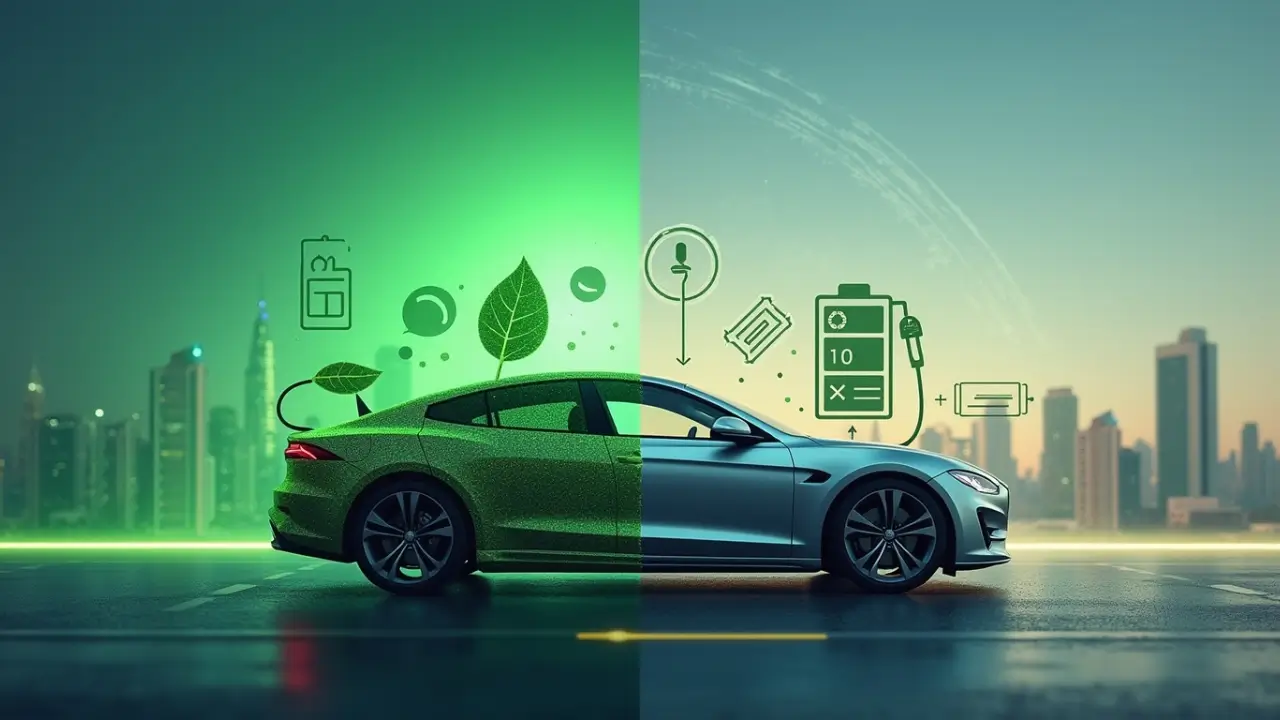Explore the rise of hybrid cars, their benefits and drawbacks, including fuel efficiency, eco-friendliness, costs, and long-term value.
Introduction
Needless to say the auto industry has come a long way in terms of sustainability and fuel efficiency. Hybrid cars offer a distinct advantage over conventional gasoline powered vehicles. Hybrid vehicles which pair an internal combustion engine with an electric motor have become increasingly popular in recent years. It is due to enhanced fuel economy lower emissions and promising technology.
While hybrid vehicles certainly have their advantages they do have some disadvantages that you should think about before making a purchase.
The Evolution of Hybrid Cars
While hybrid vehicles have existed for decades their mass market launch began around the late 1990s and early 2000s with the release of the Toyota Prius and other models. In the early 20th century escalating fuel costs and increasing environmental awareness drove automakers to seek cleaner more efficient means of transportation. As technology has progressed so too has the internal hardware regenerative braking and features. That intelligently manage energy consumption making hybrid cars desirable for today motorists.
Benefits of Hybrid Cars
Improved Fuel Efficiency
Well probably one of the best features of hybrid cars is its assurance of fuel efficiency. Hybrids use less fuel than their gasoline guzzling brethren. Because they get some assistance from an electric motor that augments the internal combustion engine. Less gas and fewer trips to the pump mean lower total fuel costs so over the long haul hybrids make good financial sense.
Lower Carbon Emissions
The emissions of hybrid cars are much less in comparison to a normal car so it is a greener car. Hybrids also contribute to lower CO₂ emissions by utilizing electric power for some of their functions thereby reducing air pollution and the negative effects of climate change.
Regenerating Barking
Hybrid cars use regenerative braking technology unlike conventional vehicles which waste energy while braking. This energy powers both the home and the electric vehicle and needs to be recharged into the battery when used. Not only does this help improve energy efficiency but also helps to reduce wear and tear on the brake system.
Smooth and Quite Driving Experience
They are known for providing a more quiet and seamless driving experience especially in cities where they can run on electric only power at low speed. The switches between electric and gasoline power is usually seamless which improves overall comfort on the ride.
Government Incentives and Tax Benefits
Various governments provide tax credits reduced registration costs and subsidies for hybrids. Not to mention these incentives offset the upfront costs of the vehicle. As well as motivate eco friendly purchasing behavior among consumers.
Drawbacks of Hybrid Cars
Higher Initial Cost
Hybrid vehicles are generally more expensive than traditional gasoline only vehicles because they use more technology to make them. If the system is included this usually means a higher purchase price although government bonuses and long term fuel savings can help absorb the cost of the battery pack and the hybrid powertrain.
Battery Replacement Costs
So yes hybrid car batteries are built to last for plenty of years but they do wear down over time. Replacing a hybrid battery can be expensive to do and while virtually all manufacturers provide long warranties battery replacement is still an issue in terms of long term ownership.
Limited Electric-Only Range
Standard hybrids have a tiny electric only range compared to plug in hybrid or fully electric. They do not get rid of gas use however since they depend on gas during a sizable part of the time they are running.
Maintenance Complexity
Although hybrids typically need less frequent servicing than regular vehicles because they do not rely as heavily on the combustion engine their building blocks do remain more complex. Hybrid technology specialists may charge higher fees for repairs. Some repairs can be expensive due to the electric integrations into car and gasoline combinations.
- Audi GT50 Concept: A Loud Reminder of Why Car Enthusiasts Fell in Love With Audi
- Nearly 30% of UK Drivers Believe Car Tax Should Be Based on Mileage — Survey
- Why Planes and Boats Escaped the Luxury Tax But Cars Didn’t
- Australia’s Headlight Confusion: Authorities Warn Drivers After Viral $250 Headlight Rule Goes Wild Online
- 2025 Hyundai Venue Facelift Launched in India – Full Details, Variants, and Price
Environmental Concerns with Battery Production
And even though hybrids are cleaner when they are being used they create pollution when they are built especially when it comes to the batteries. Extracting lithium, cobalt and other minerals needed for hybrid batteries triggers sustainability and environmental concerns.
Conclusion
Hybrid vehicles have evolved significantly since their inception and they remain an excellent option for consumers who want an impressive balance of fuel efficiency. They represent a real world compromise between conventional gasoline vehicles. All electric ones a stepping stone for consumers not quite ready to embrace a fully electric future.
